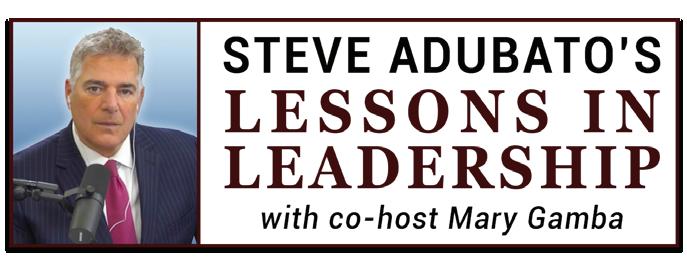
4 minute read
Lessons in Leadership
Effective Listening

Advertisement
Overcoming these barriers can help you improve relationships and spark new ideas
For every leader, the benefits of becoming a better listener are considerable. Effective listening improves the quality of our relationships, encourages people to be more open with us and allows us to be open to new ideas and ways of doing things. But the fact is, listening is really hard work. And even those of us who consciously work to improve our listening skills often fall short.
So, what makes listening so difficult? First, we have developed some bad habits. Consider growing up in a family where dinnertime was filled with spirited, sometimes contentious, discussions and debates. You may have learned to talk and express your opinions without taking into consideration that you may be talking over others in your family. In most situations, the one who talked the loudest and most persuasively was in control. What you probably didn’t learn was how to listen to another point of view. The fact for something more stimulating takes over. is, many bad listening habits are picked up in the home. Apathy: If you think you’re not interested in what a person has
But beyond developing bad listening habits, there are barrito say, you’re not going to be able to listen intently. If you feel the ers that make truly effective listening so challenging. They can be subject matter doesn’t pertain to you, isn’t going to help you, or is psychological, environmental, personal or physical (i.e., hunger or something you’ve heard a million times before, you create a mindfatigue). Consider some of the following barriers to listening that set that won’t let the speaker’s words touch you. “Been there, done stand in the way of us really being in sync with someone: that” is how a lot of people feel and it is also a major barrier to fully
Self-absorption: We are intrinsically self-oriented. The truth concentrating and truly listening. is, even the most altruistic people, at some level, are more interInner voice: The things we say to ourselves while someone ested in themselves than other people. We like our own opinion, else is speaking can get in the way of really listening. Your inner our own words, and the sound of our own voice more than we do voice may be saying, “Will she ever stop talking?” Or, “This is such someone else’s. This is not necessarily wrong; it’s just something old news; I’m wasting my time.” Or, worse, you completely zone we have to be aware of as it gets in the way of us being a great out and are working on your mental “to do” list of anything else listen-er. you believe you should be doing except being present in this con
Distractions: Whether mental, physical or environmental, versa-tion. You can’t possibly hear what’s being said when you’re distractions are a barrier to effective listening. If there are multiple talking to yourself. conversations going on around you or if you are in a loud restauWhat do you think is the biggest barrier to you being a better rant for example, you need to work even harder to focus in on the listener? Write to me at Steve-Adubato@gmail.com so we can learn person’s voice and tune out the other noise. Add to that a headache together. or other physical or mental stressor and important words will fall on deaf ears. The great listeners recognize these distractions and Steve Adubato, PhD, is the anchor of several programs on PBS make a conscious effort to tune them out. stations WNET and NJTV and is the author of five books including his
Impatience: Most of us are extremely impatient and we have latest, “Lessons in Leadership” and “What Were They Thinking”, a limited attention span. Think about how we watch TV these days, which examines crisis communication and leadership during at the ready with the remote control. If a program doesn’t catch challenging times. Steve’s “Lessons in Leadership” video podcast our interest in a few seconds—‘ZAP’—on to the next station. The with co-host Mary Gamba airs Sundays at 10:00 a.m. on News 12+. problem comes when this mentality plays itself out in our comLog on to www.Stand-Deliver.com to watch this video podcast, or munication with others. If someone isn’t saying something that subscribe to the podcast on Google Play, Apple Podcasts or Spotify. compels us in a very powerful way—‘ZAP!’—we’re on to another Steve also provides executive leadership coaching for a variety of station or have gone off in our mind to an-other place. This barrier organizations both regionally and nationally. For more information is also compounded by social media, where everything is in smalland to find other articles Steve has written on communication and er, di-gestible, 15-30 second pieces. Anything longer and our need leadership in challenging times, visit www.Stand-Deliver.com










